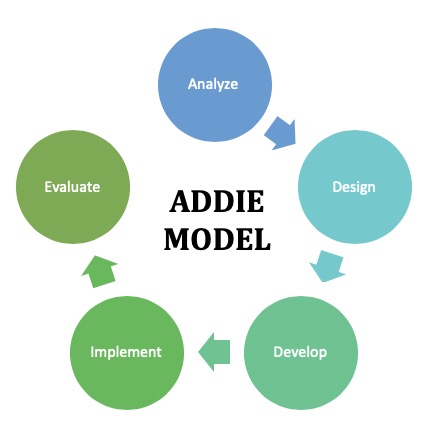Did You Say a Personal Concierge for Course Design?

By Marci Powell
At the International Forum for Women in E-learning (IFWE) conference, a few colleagues and I were discussing the challenges of supporting instructors with course design. In a jolt of inspiration, I had an “aha moment” and suggested the concept of a “personal concierge service” so that instructors are more inclined to take their course to the next level. Given the reaction to the concept, I thought it worth sharing.
I’ve spent a good part of my career, in online and distance learning, traveling worldwide working with education institutions or speaking at conferences. Most often the trips are short or packed with going to/from the airport and only seeing the inside of a university, hotel, or conference venue. There is usually very little time to explore the city or country but when the opportunity arises, you can bet I want to experience it to the fullest.
The challenge when traveling, however, is to know what the location has to offer and to understand the local culture. This is why I count on access to a concierge or local expert.  Without one, I would never have known to take the Night Safari tour of Nocturnal Park at the Singapore Zoo, which was quite stunning and unforgettable. Nor would I would ever have ventured out by myself to see the Great Ocean Road in Australia or the Great Wall of China. With the latter tour the concierge arranged, I met up with a couple of Russian scientists and had an incredible and delightful experience.
Without one, I would never have known to take the Night Safari tour of Nocturnal Park at the Singapore Zoo, which was quite stunning and unforgettable. Nor would I would ever have ventured out by myself to see the Great Ocean Road in Australia or the Great Wall of China. With the latter tour the concierge arranged, I met up with a couple of Russian scientists and had an incredible and delightful experience.
The fact is, when exploring a new environment, I don’t know what I don’t know. I am unsure of tricks or shortcuts, the easiest, best, and safest way to navigate a new territory. When I am offered a concierge service of any kind, generally, rather than not accepting the help, I am inclined to embrace it. Having a concierge provides the confidence to step out. It changes the entire experience and opens up opportunities not foreseen.
Isn’t this the case with course design?
While some instructors are not only content experts but also have expertise in teaching, not all can say that. An instructor doesn’t know what they don’t know. They might not understand the institutional or student culture. They may not be familiar with the tricks, shortcuts, or best way to navigate new learning environments.
Regardless, with the rate at which technology changes, it is impossible to KNOW what is available and how to integrate it into a course. Not all of us are comfortable exploring on our own nor do we have the time. Add to that, the challenge of translating a residential based course to one suitable for online delivery.
Similar to the way a travel concierge listens to the client, designs an itinerary, and procures tickets for an excursion, a personal concierge could do the same around course design. A personal concierge can empower instructors and eliminate resistance by providing the comfort level they need to explore, to try new things, and can change not only their experience but that of their students.
An itinerary designed by a concierge is built in unison with the traveler with an approach that encapsulates vision, what they want to experience and how they want to experience it. A personal concierge can work with instructors to design an itinerary, or in this case, a course by offering insight into what is possible, suggesting best activities providing guidance.
The outcome will not only give students an engaging experience, but it can ensure a very pleasant one for the instructors in the design process as well as in course delivery. Learning designers ensure quality of instruction like a concierge ensures guests have a quality experience.
Consider what personal concierge support would look like.
Apply the concept to the application of an instructional design framework. Let’s use a model many open universities use, (including the U.K. Open University, the OU of the Netherlands, and Athabasca University) the 5-stage ADDIE model —Analyze, Design, Develop, Implement, and Evaluate.
Using the description of ADDIE from chapter 4 of Teaching in a Digital Age by Tony Bates combined with a personal concierge concept might look like this:
A concierge finds out what’s already been done and what you want to experience.
ANALYZE – identify all the variables that need to be considered when designing the course, such as learner characteristics, learners’ prior knowledge, resources available, etc.
A concierge knows all that is available, offers suggestions that best fit. 
DESIGN – this stage focuses on identifying the learning objectives for the course and how materials will be created and designed
A concierge develops the itinerary and makes arrangements such as restaurant reservations, tickets, and tours based on selected activities.
DEVELOP – the creation of content, including whether to develop in-house or outsource, copyright clearance for third party materials, loading of content into a web site or LMS, and so on;
A concierge gets you started and provides help along the way as needed.
IMPLEMENT – this is the actual delivery of the course, including any prior training or briefing of learner support staff, and student assessment;
A concierge follows up on your experience and helps you determine what’s next.
EVALUATE – feedback and data are collected in order to identify areas that require improvement and this feeds into the design, development and implementation of the next iteration of the course.
How to Manage this Level of Support
By now, you can see the value a personal concierge can bring, but the big question is how in the world could you manage the demand for personal concierge services.
Not all institutions have a team of learning designers to support instructors in course design and delivery. Some institutions have none. Utilizing students is a great way to offer support for those institutions that don’t have a large professional team. Students can fill the gap as personal concierges and bring an additional level of support not necessarily previously available.
By combining professionals trained in the science of teaching and instructional delivery methods with students who understand emerging technologies and know the expectations and preferences of today’s student, you have the perfect concierge team.
Years ago, at a prior institution where I served, we created a SHIFT team (Students Helping Integrate Future Technologies) for each campus. We designed a low cost plan including benefits for those who served. Students applied to join the team. After an interview process and team selection, each student would commit to serve at least an hour a day.
Between our design team and SHIFT program, instructors had 1:1 support either to work with them to better understand the technology or to help with integration into their courses. It was a huge “award-winning” success. 
Last year I had a trip of a lifetime to Italy. The sights, sounds, and tastes were incredible. Oh the tastes I am still craving! It was an experience I will never forget, and I long to go back.
Isn’t this what we want for our students? Isn’t this what we want for our instructors? If our institutions are delivering courses that heighten every sense of the learner to engage them in experiences they won’t forget, can you imagine the learning outcomes?
A personal concierge service can take courses created and delivered by brilliant subject matter experts and turn them into ultimate learning experiences our students will not soon forget. Even better, a personal concierge service for learning design will help instructors who are drowning in their workload with little time to explore have an incredible journey they won’t soon forget.
